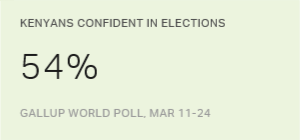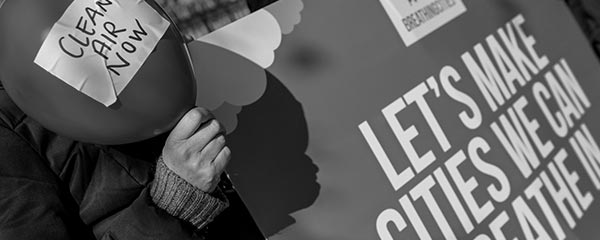Story Highlights
- More than half of Kenyans confident in their electoral process
- Nearly two-thirds (65%) approve of job Kenyatta has done as president
- Eight in 10 Kenyans continue to believe corruption is widespread
WASHINGTON, D.C. -- If the rerun of Kenya's presidential election takes place as scheduled Thursday, it will be the second test in as many months of Kenyans' faith in their country's election process. Before the first election on Aug. 8, which the country's Supreme Court nullified over irregularities and illegalities, more than half of Kenyans (54%) said they were confident in the honesty of their elections.
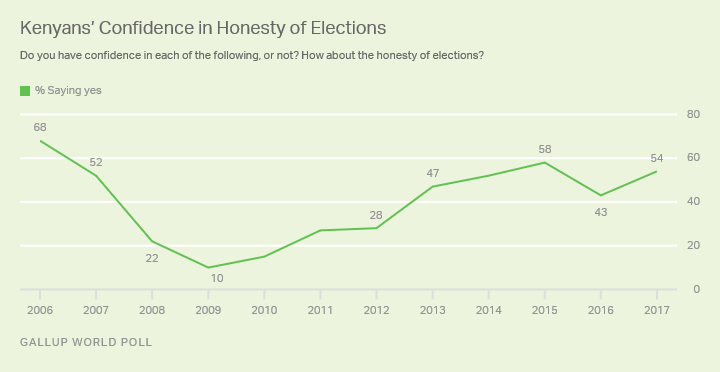
Many Kenyans, as well as global leaders, fear a repeat of the violently contested 2007 election between then-President Mwai Kibaki and Raila Odinga -- after which confidence in the Kenyan electoral process tumbled to a low of 10% by 2009.
Then and now, critics accused the electoral commission of manipulating the votes to favor the incumbent. President Uhuru Kenyatta's August win over Odinga with a 54% majority is consistent with his high ���۴�ýapproval ratings since he was elected in 2013. Before the August election, nearly two-thirds of Kenyans (65%) approved of how he had been handling his job as president.
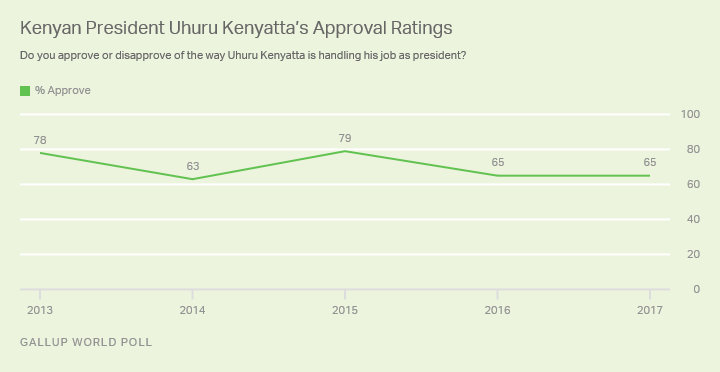
Confidence Up in National Government and Judicial System
Shortly after the disputed 2007 election, Kenyans' confidence in other institutions, as well as the electoral process, began to improve slowly. By 2017, nearly two-thirds of Kenyans (64%) expressed confidence in the national government, and 57% said they trusted the judicial system -- confidence they will need to weather this current political and legal storm.
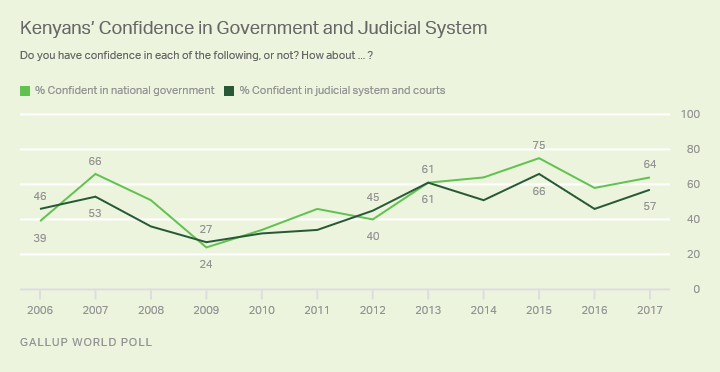
Perceptions of Widespread Corruption Continue in Kenya
Regardless of their growing confidence in many institutions, Kenyans continue to believe corruption is endemic in their nation. In 2017, more than eight in 10 say corruption is widespread throughout the government (85%) and within businesses (83%), echoing more than a decade of similar sentiments. Kenyatta has passed several anti-corruption measures, including a freedom of information law, but these actions have yet to generate any concrete results.
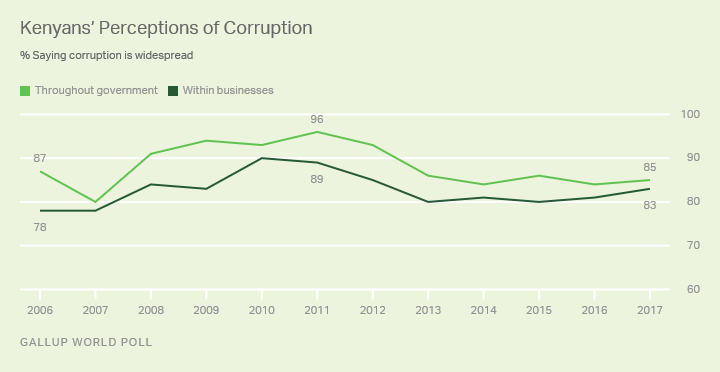

Access Global Survey Data
Shape your research on global issues with access to opinions from every corner of the Earth.
Implications
Kenya is the financial core of East Africa, and its economic position continues to improve. Since 2014, it has enjoyed a "lower middle income" status because its per capita GDP crossed a World Bank threshold. Yet Kenya is still a country with complex ethnic affiliations that can continue to provoke election upheaval, as they did in 2007. If Kenya's leaders don't soon make considerable efforts to improve ethnic relations and reduce perceptions of corruption -- and to continue to inspire even more confidence in their elections -- recent economic gains alone may be insufficient to provide all Kenyans the full benefits of a better life.
Survey Methods
Results are based on face-to-face interviews with 1,000 adults, aged 15 and older, conducted March 11-24, 2017, in Kenya in English and Swahili. For results based on the total sample of national adults, the margin of sampling error is ±3.8 percentage points at the 95% confidence level. The margin of error reflects the influence of data weighting. In addition to sampling error, question wording and practical difficulties in conducting surveys can introduce error or bias into the findings of public opinion polls.
For complete methodology and specific survey dates, please review .
Learn more about how the works.
